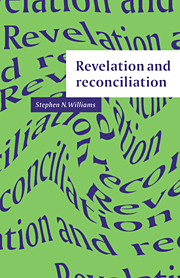Postscript: The one, the three and the many
Published online by Cambridge University Press: 03 December 2009
Summary
This study was substantially complete before the publication of Colin Gunton's Bampton Lectures under the title above, subtitled God, Creation and the Culture of Modernity. It is a volume that touches both on issues that underlie our study and on issues on its surface, and it is appropriate to conclude with some discussion of it. While we shall take note of its thesis as a whole, only selected relevant aspects will come up for critical comment. Some overlap with preceding discussions is unavoidable.
We noted earlier that when Don Cupitt furthered his radical break with theism, he threw down the gauntlet and said that it was incumbent on orthodox theologians to offer a credible account of the displacement of God in modern thought and culture. This is a challenge which Gunton takes up, though not specifically in response to Cupitt. The Bampton Lectures constitute an ambitious and statesmanlike attempt to understand and treat the intellectual malaise afflicting Western culture. Modernity, it is argued, signally fails to solve the problem that exercised philosophers of antiquity and exercises the modern era too, namely the problem of the one and the many. Prima facie we have lost any sense of the ‘one’ today and interpret reality as a stark plurality. The loss of belief in a transcendent unifying principle of being has therefore issued in a culture marked by fragmentation. Reality resides not just in the particular, but in innumerable particulars, diverse and conflicting, so that moderns experience loss of objectivity.
- Type
- Chapter
- Information
- Revelation and ReconciliationA Window on Modernity, pp. 164 - 174Publisher: Cambridge University PressPrint publication year: 1996



